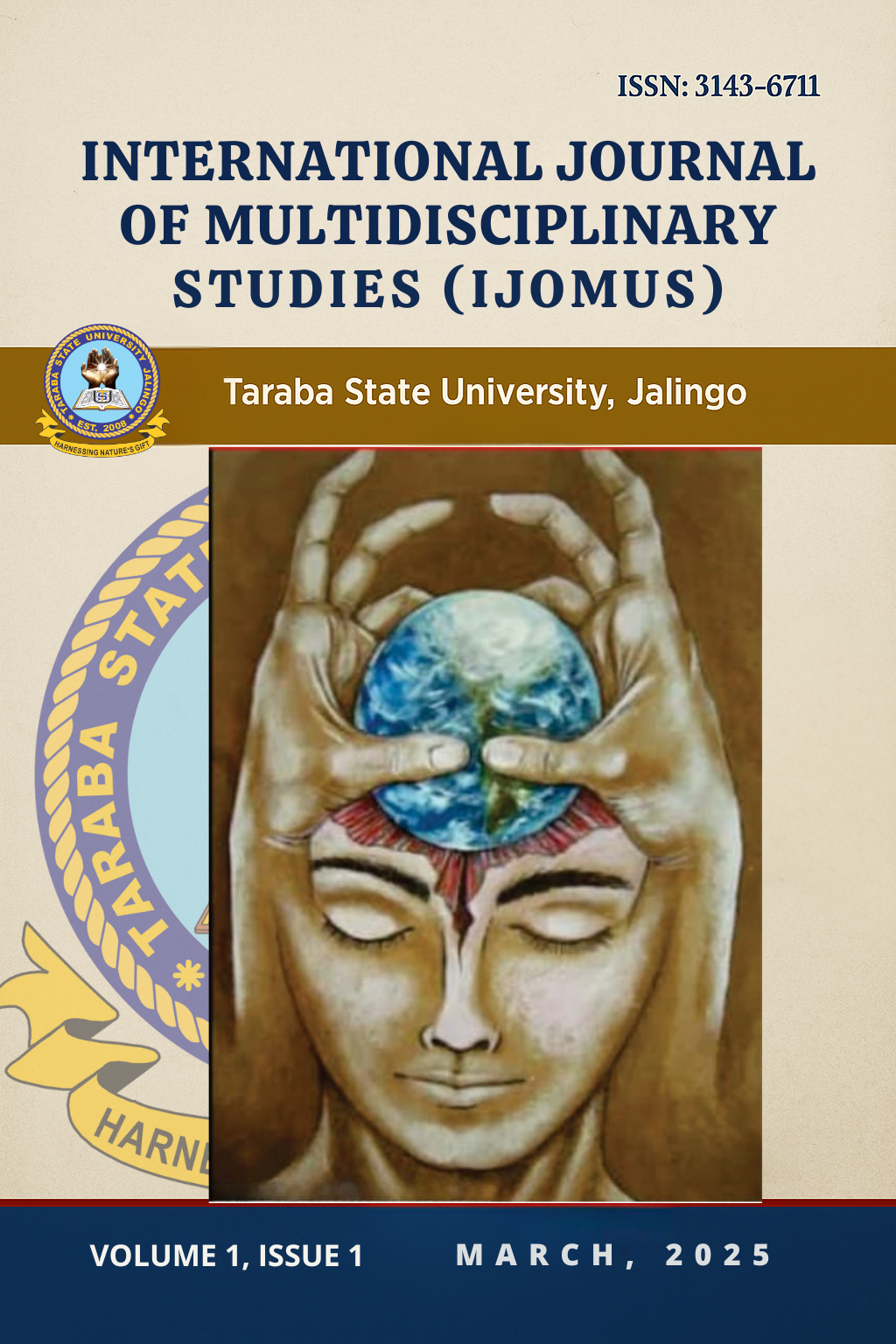THE ROLE OF INTER-FAITH IN PEACE BUILDING: THE STUDY OF JALINGO TARABA STATE
Abstract
This study explores the pivotal role of inter-faith dialogue in peace building initiatives within Jalingo, the capital of Taraba State, Nigeria, a region marked by religious plurality and frequent conflicts. The research emphasizes how inter-faith interactions can serve as a platform for dialogue, mutual understanding, and collaboration among diverse religious groups. Using a mixed-methods approach that includes qualitative interviews, surveys, and participant observation, the study captures the perspectives of community leaders, religious figures, and residents on the effectiveness of inter-faith initiatives aimed at conflict resolution and social cohesion. Findings highlight that sustained inter-faith dialogue fosters community resilience, reduces sectarian tensions, and promotes a culture of peace. The study also identifies challenges, such as institutional bias and socio-political instability, that impede inter-faith efforts. Recommendations include strengthening collaborative frameworks between religious institutions and governmental bodies to enhance peace building strategies. Ultimately, this research underscores the essential contribution of inter-faith initiatives in fostering sustainable peace in Jalingo and similar contexts, offering insights applicable to broader national and international peace building efforts.

